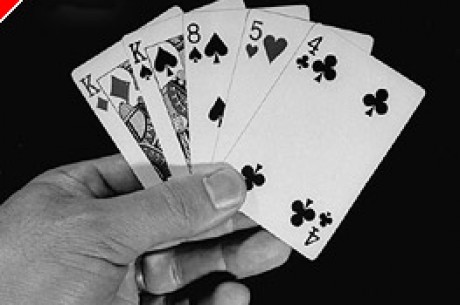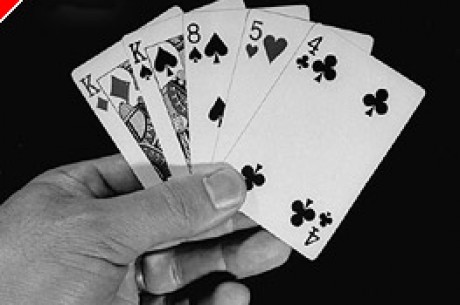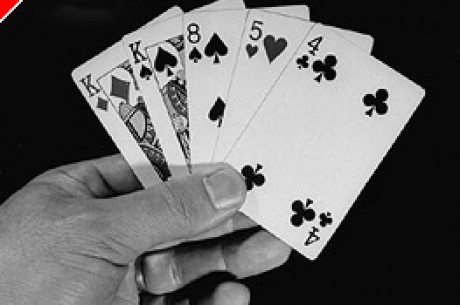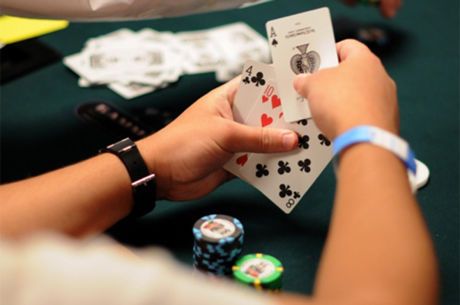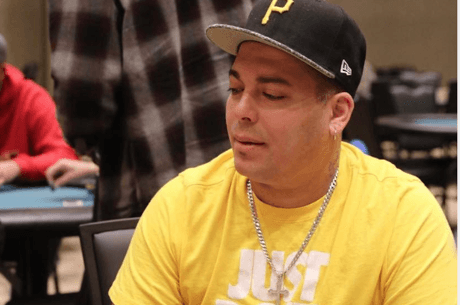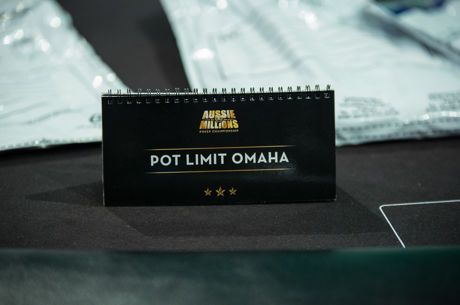Introduction to Omaha - Room for Improvement
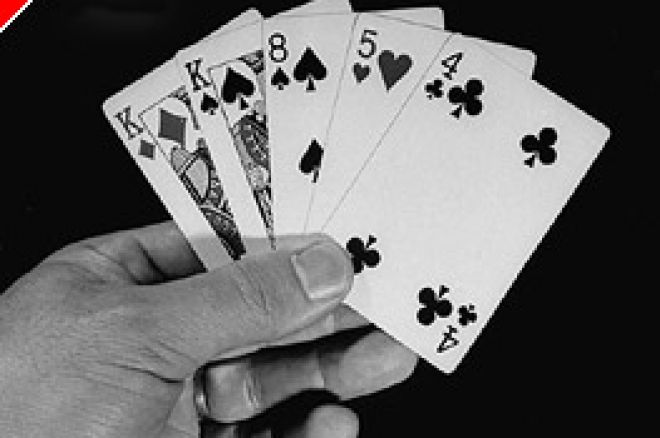
Tony is a regular on-line and card room player living in England. He mostly plays Texas Hold'em and Omaha (High and Split) at fixed, pot and no limit, at both cash and tournament tables.
Introduction
Omaha is a game where the likelihood of significant improvement to some players' hands exists at every round of the betting - the flop, the turn and the river. Whereas in Texas Hold'em, if you make a strong hand at the flop, the probability is that you will not be outdrawn too often. This cannot be said of Omaha (High or Hi/Lo) and consequently, this should have a bearing on your approach to betting at the post-flop stages, especially at pot limit.
The Temporary Nuts
As discussed in an earlier article, the "temporary nuts" is a common stumbling block to making profits. It can suck you into committing a major proportion of your chips to a pot you are likely to lose. With four hole cards, it is not unusual to flop a nut hand, but any initial euphoria has to be tempered, particularly in the pot limit game. Here, the size of the pot when the flop drops is very small compared to what it could become if pot-raises take place during the ensuing betting.
It is vital therefore to consider how your hand will fare in a race against other players' hands. Whilst you may have flopped the nuts, can that hand improve itself given the available draws or, more relevant perhaps, can your opponents make progress with the right turn and river cards based on the flop cards on show?
These are vital questions because you do not want to enter into a battle of escalating betting if the odds are strong that you will lose the race by the river's end. In Omaha, most races make it to the river. Often, you have to show down the best hand because bluffing is not so easy to accomplish when your opponent might have 17 outs or more to complete a hand better than yours.
How will you know the dangers? The cards and the betting should tell you.
Before considering some examples, let me reiterate one of the basic rules of profitable poker - choose your starting cards carefully so that those cards at least offer the best chances of maximising the number of nut hands you could make. It's best to make that decision before any meaningful number of chips has been committed. That way, you can avoid getting sucked into hands that give you some tantalising draws but very few ways to improve.
Back to the post flop scenarios. Let's consider an example:
You start off with As Kd Jh 9h, a decent but not spectacular hand that you would best bet with when in late position. The flop comes down Qd Td Ks giving you the top straight and the temporary nuts. They are "temporary" because the cards left to come could improve someone's hand to a flush in either diamonds or spades, or full houses, and occasionally better. The high cards make it likely that other players have matched their cards to make perhaps a 2-pair or a set. If there are still several players in the hand, it has to be feared that someone has two diamonds in their hand.
Someone holding Ad Js 9d 9s will not be letting go of this hand. Apart from also holding the top straight (and it is more likely that top straights are split as high cards are less likely to be folded pre-flop), that player also has a nut flush draw.
Someone holding Tc Td 8d 7c will likewise be hanging around with a middling flush draw but also a made set of T's with several outs for full house. This person should of course take some care himself because a bottom set and a mid-ranked flush can both come unstuck at Omaha to higher examples (QQxx, KKxx, Ad Jd xx).
However, your made top straight is potentially in deep trouble because, based on the flop, you are struggling to find room for improvement. Your only flush potential (hearts) disappeared at the flop. You need running turn and river cards to make a full house being of the weaker variety where you do not hold a pair in your hole cards. If a K and a 9 hit the board you have KKK99. Unfortunately, someone with KQxx, or KTxx would have you beaten.
In summary, flopping the nut straight can be bad news because it will cost you potentially a huge wad of chips to prove that someone has you beaten. This is where position is so important in pot limit Omaha. If you have hit the nut straight, and you are on the button, you have the luxury of seeing what the other players think of their own hands giving yourself the chance to withdraw for a small cost.
Players on a weak draw out of position are likely to check. The last thing they want to do is encourage a pot-sized re-raise thereby eliminating their odds of seeing the next card. Players with something made might well bet out as might a player with a huge number of draws to improve such as a double-suited hand containing a made set. Such a large raise should tell you that your chip stack is in jeopardy with a rough 2/1 chance of a diamond in the last two cards, a similar chance of someone making a full house if they hold a set, and finally, a fair possibility your nut hand will be split given the flop cards. One more A or J will increase this chance.
If you are out of position, you cannot be sure what is coming in behind you. Should you bet your made hand, you are likely to be pot-raised by a multi-faceted drawing hand, particularly one that has also made a straight or a set. At the least you will be called which puts you at the mercy of the next card. A check might be best to put the onus back on the other players to reveal themselves
Conclusion
Having a made hand at the flop can sometimes be a disadvantage in Omaha, and very costly at pot limit. In some ways, hitting a big hand at the flop is tantamount to peaking too early. Omaha is a river game because the draws available to all players with good starting hands will be numerous at the flop stage encouraging more betting for draws. It is often more comfortable to make your hand at the turn or, better still, the river. This eliminates available draws for other players and lengthens their odds of making their draws. At that stage, a pot-bet can be far more effective at driving the drawing hands out.
The point here of course is that your hand was not so strong at the flop but improved by the turn or the river. You need room at Omaha - room to improve your hand during each round.
20 October 2005

